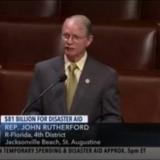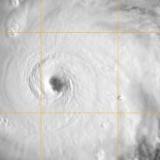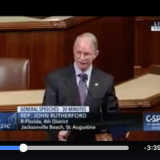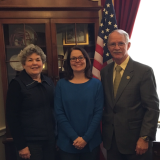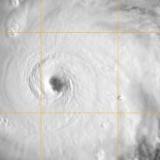Hurricane Preparedness
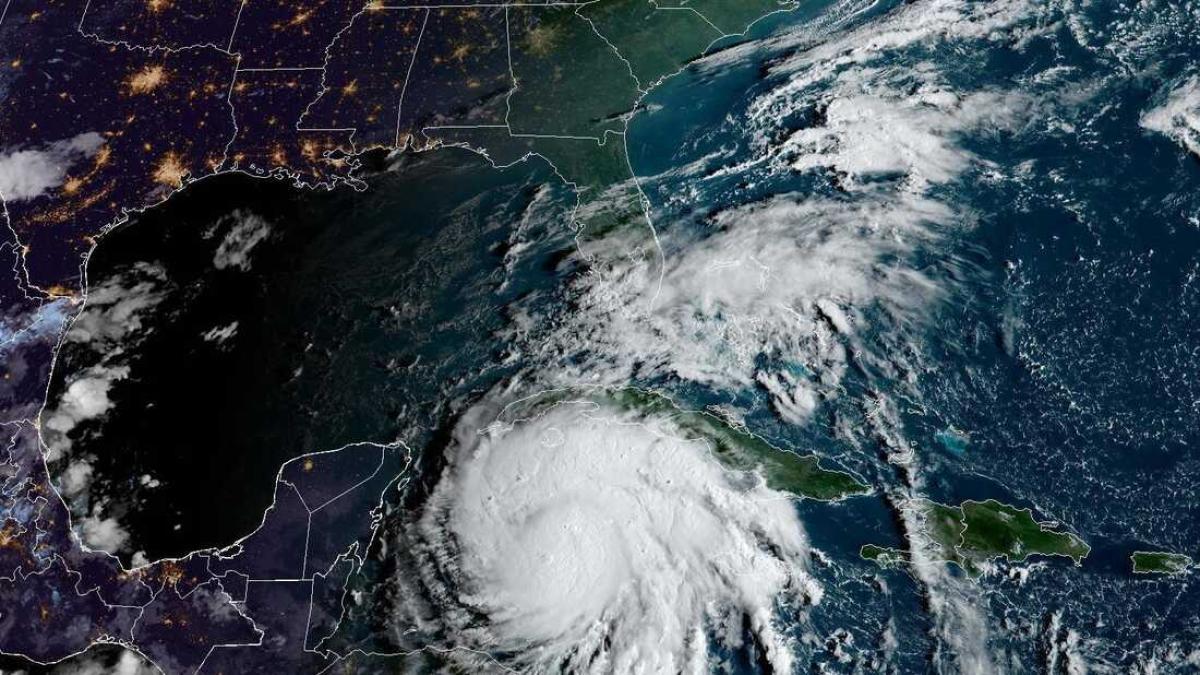
Floridians are not strangers to hurricanes and tropical storms, but these severe weather events can develop quickly and without warning - bringing high winds, heavy rain, storm surge, flooding, and tornadoes with them. It is important to be ready at a moment's notice.
I have compiled a list of resources below to help you reduce the impact of a hurricane on your family and home.
For immediate and life-threatening emergencies, call 911.
For non-emergencies, dial 211.
Preparing for a Hurricane
- Prepare a hurricane kit with necessary supplies.
- Be sure to charge your devices.
- Monitor local weather and emergency updates.
- Traffic Updates During Emergencies: CALL (866) 511-3352
- Listen to your local officials for developments and instructions on evacuating, sheltering in place, and returning home.
- Governor Ron DeSantis
- Florida Division of Emergency Management (FDEM)
- Duval County
- Nassau County
- St. Johns County
- National Weather Service Jacksonville: (800) 499-1594 ext. 1
- Florida Public Radio Emergency Network: 89.9 WJCT-FM
Evacuating & Sheltering in Place
- The Florida Department of Emergency Management (FDEM) activates the State Assistance Information Line (SAIL) during an emergency to provide additional information for Floridians seeking current updates regarding hurricane activity. Residents and visitors can call this toll-free hotline at 1 (800) 342-3557.
- If you decide to Shelter in Place, you may report your location to first responders to aid their efforts to address the needs of impacted households quickly.
- Red Cross Shelter Locations: American Red Cross services, including food and shelter, are always provided at no cost. You can also search for open shelters by texting SHELTER and your ZIP CODE to 43362.
- Special Needs Shelters are available in Jacksonville for individuals and families who need them. To learn more, call (904) 255-3110.
- Know your Evacuation Zone! When evacuating, be aware of downed power lines and standing water. Avoid walking or driving through flood waters as it can sweep you or your vehicle off the road and cause fatal electrical shocks from underground or downed power lines.
Recovery Resources
State Resources:
- Florida Help Line: (800) 342-3557
- Consolidated Storm and Emergency Information Resources
- Jacksonville Sheriff's Office Non-Emergency Line: (904) 630-0500
- Nassau County Sheriff's Office: (904) 225-5174
- St. Johns County Sheriff's Office: (904) 824-8304
- Jacksonville Electric Authority: (800) 683-5542
- Beaches Energy Services (24 Hour Emergency Service): (904) 247-6171
- Florida Power & Light: (800) 226-3534
- Home Cleanup Hotline: (800) 451-1954
- Florida Department of Economic Opportunity:
- Florida Department of Health and Human Services
- Florida's Chief Financial Officer Hotline: (877) 693-5236
- Report Fraud and Price Gouging to the Florida Attorney General's office: (866) 966-7226
Federal Resources:
- FEMA: All individuals who have had property impacted by a storm should apply for FEMA assistance. FEMA coordinates the federal government's role in preparing for, preventing, mitigating the effects of, responding to, and recovering from all domestic disasters. For assistance with filing a claim, you may call (800) 621-3362 or visit: https://www.disasterassistance.gov/. Be prepared to provide the following information when you call:
- A phone number and a reliable alternate in case FEMA needs you to call back;
- Address of the damaged property;
- Social Security Number (SSN);
- Bank Account Information (or direct deposit information);
- Insurance Information (if applicable);
- Current mailing address; and
- Pen and paper to write down your registration number
NOTE: If you disagree with FEMA's determination of eligibility or the form of assistance provided, you have the right to appeal within 60 days of the date of your notification letter. Call 1-800-621-3362 or 1-800-462-7585 (TTY) immediately to alert FEMA of your appeal. Send your appeal letter to: Appeals Officer, FEMA Individuals & Households Program, National Processing Service Center, P.O. Box 10055, Hyattsville, MD 20782-7055.
- Small Business Administration: The SBA is the federal government's primary source of money for the long-term rebuilding of disaster-damaged private property. SBA helps homeowners, renters, businesses, and non-profit organizations repair or replace real estate, personal property, machinery and equipment, inventory, and business assets that have been damaged or destroyed in a declared disaster. These disaster loans cover uninsured and uncompensated losses and do not duplicate benefits of other agencies or organizations. For disaster assistance, you may call (800) 659-2955 or visit: https://disasterloanassistance.sba.gov/ela/s/. Be prepared to provide the following information when you call:
- Contact information for all applicants;
- Social Security Numbers (SSN) for all applicants;
- FEMA registration number;
- Deed or lease information;
- Insurance information;
- Financial information (income, account balances, and monthly expenses); and
- Employer Identification Number (EIN) for business applicants
- United States Department of Agriculture (USDA) - Food and Nutrition Service (FNS): Provides food assistance to those in need in areas affected by a disaster. This federal assistance is in addition to that provided by state and local governments.
- Department of Housing and Urban Development (HUD): Provides housing assistance to homeowners and renters.
- Department of Labor: Provides assistance in communities affected by severe storms, floods, and other disasters through Disaster Unemployment Assistance.
- Internal Revenue Service (IRS) Disaster & Emergency Relief for Individuals and Businesses: Provides assistance with special tax law provisions to help taxpayers and businesses recover financially from the impact of a disaster, especially when the federal government declares their location to be a major disaster area.
As always, remember that my staff are available to assist you. You may contact my office at 904-831-5205 or via my Contact page. You can also follow along with my activity on Facebook and Twitter.

